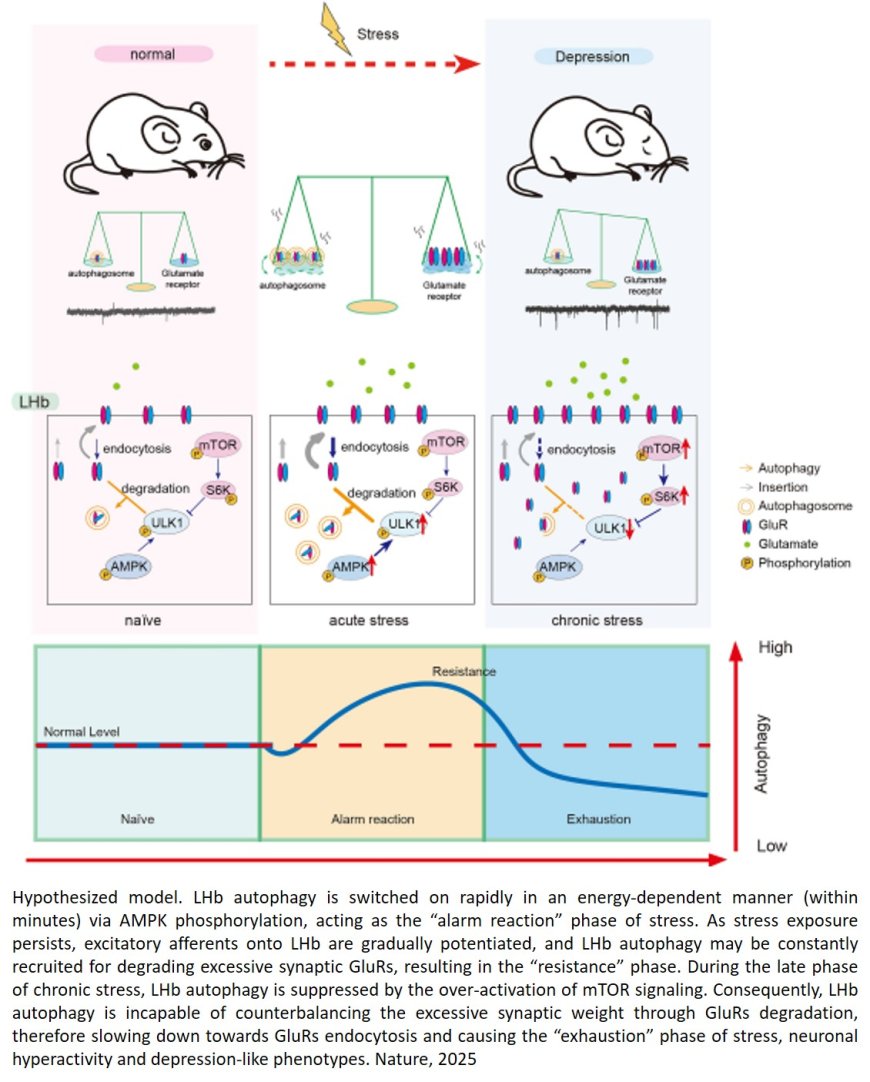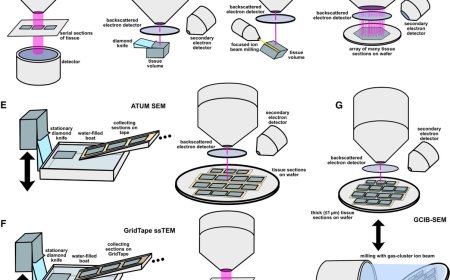Chronic stress drives depression by disrupting autophagy

Chronic stress modifies neural activity in regions of the brain, such as the lateral habenula (LHb), and may lead to depression.
The researchers report that chronic stress hinders an essential cellular housekeeping process called autophagy, which cells use to degrade and recycle their components.
The authors show that, in mice, impaired autophagy causes overactivity of neurons in the LHb, but antidepressant drugs stimulate autophagy, quelling LHb activity and protecting against depression.
Genetic ablation of LHb neuronal autophagy promotes stress susceptibility, whereas enhancing LHb autophagy exerts rapid antidepressant-like effects.
LHb autophagy controls neuronal excitability, synaptic transmission and plasticity by means of on-demand degradation of glutamate receptors.
https://www.nature.com/articles/s41586-025-08807-4
https://sciencemission.com/Stress-modulates-neuronal-autophagy












